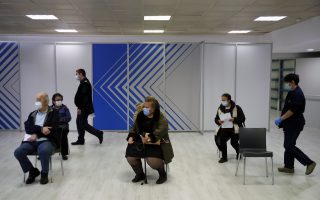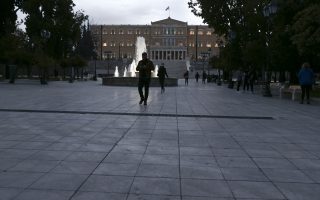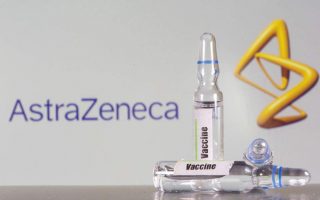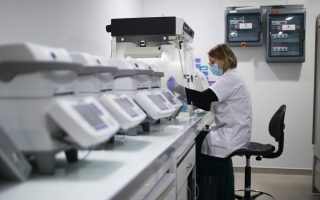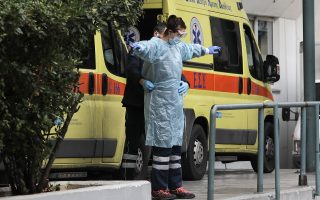Focus on testing as measures are eased

Testing the waters for a gradual reopening of the economy even as coronavirus numbers continue to rise, the Greek government on Friday announced a tentative easing of lockdown measures and a significant ramping up of testing.
Speaking at the regular public briefing on Friday, Deputy Minister for Civil Protection Nikos Hardalias said that the 9 p.m. to 5 a.m. curfew will be in force all week long starting Saturday, while Monday will see the reopening of open-air archaeological sites, though only for visitors who live nearby and are on foot.
Hair salons will also open by appointment on Monday, while clerics will be tested more regularly, allowing churches to welcome up to one person per 25 square meters of surface area.
Deputy Minister to the Prime Minister Akis Skertsos also announced that free rapid tests will be soon available at all pharmacies so that anyone with an AMKA social security number can be tested once a week.
“Let us take strength from what we have accomplished. We have done better than many countries in the world and are 26th in the European Union in cases,” Skertsos said, as health authorities announced 2,785 new Covid-19 infections, 64 deaths and 649 patients on ventilators.
Testing, meanwhile, will also be ramped up among public health workers in the wake of a serious outbreak at a Piraeus cancer hospital, where 40 members of staff and 20 patients had tested positive for Covid-19 by Friday afternoon.
Following the outbreak at the Metaxas Hospital, the Union of Public Hospital Workers (POEDIN) revealed on Friday that only half of the country’s medics have taken up the vaccine.
“A lot of health workers were – quite mistakenly – hesitant about being vaccinated at first, but many want the shot now, so we’re asking that they be given a second chance,” the head of the POEDIN union, Michalis Giannakos, told Kathimerini on Friday.
Doctors and nurses were first in line to be vaccinated when the first batch of jabs arrived in Greece in late December. According to official figures, take-up seems to have been higher among doctors, at a rate of 70%, and lower among other staff, at 40-45%.
